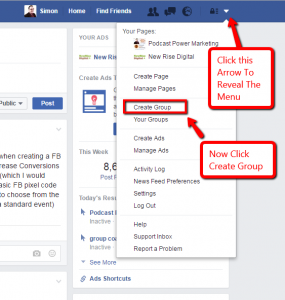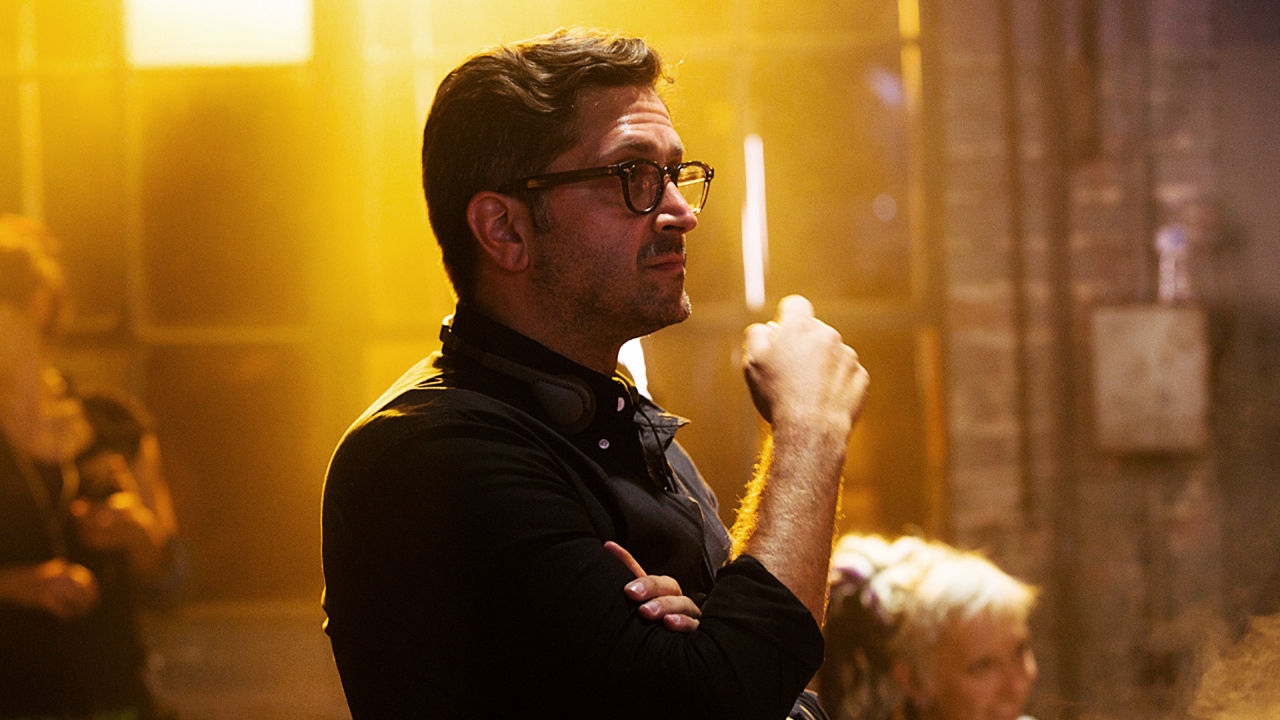
With the designer-drug thriller Urge, veteran producer Aaron Kaufman moves into the director’s chair and ramps up cinematic style.
United Palace Theatre in New York City’s Washington Heights, typically a venue for cultural and religious events, is awash in imagery of sex and drugs. Writhing women are projected onto the opulent venue’s walls, and a dancer grinds in a cage beside a bar where sleek bartenders sling drinks to the sexy elite. All this at 3:30 in the afternoon.
The theatre has been transformed into a chic nightclub for a scene in the upcoming movie Urge starring Pierce Brosnan, Justin Chatwin (Shameless), Ashley Greene (Twilight), and Danny Masterson (That ’70s Show). The movie also marks the directorial debut of veteran producer Aaron Kaufman (Machete Kills, Sin City: A Dame to Kill For, The Greatest) who’s intently watching what feels like the umpteenth take of this scene from behind a wall of monitors.
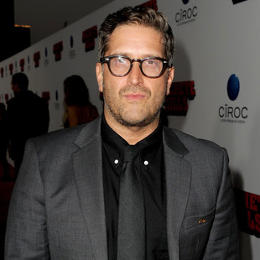
“Roll sound. Cue playback. Action!”
Urge focuses on seven friends who are introduced to the new designer drug Urge, which, once taken, slowly makes you lose your ability to control your urges. Violence, sex, and gluttony naturally ensue, and in this scene Masterson is dumbfounded by his buddy (Chatwin) who seems unaffected by the drug.
Amid all the extras and crewmembers milling around, one of Kaufman’s friends sneaks on set and is chatting with a producer between takes. “It’s nice he’s found his passion,” whispers Kaufman’s friend. “He’s been wanting to do this for a long time.”
An understatement, to be sure.
“I had always loved film but I never thought about what a director did. Then I saw Do the Right Thing when I was 14 and that changed everything,” Kaufman says. “My mind was on fire because all of this stuff you’ve never seen in movies before was packed into this movie. It had something to say. It had the energy. It was just amazing. What was great about it was I was curious to find out who did this—who was the director, what does that even mean to be a director?”
Kaufman recently spoke with Fast Company about his transition from producer to director, making it his job to know every job, and why the only currency that matters is the cultural kind.
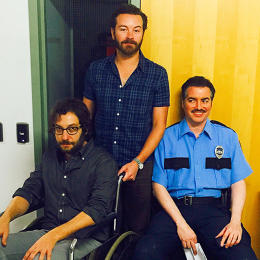
“I guess everyone has their own path—mine’s been circuitous.”
After Spike Lee’s 1989 picture ignited his love for film, Kaufman tried to follow up with his passion at New York University but his father, who was never keen on Kaufman studying film, convinced him to leave school to help him sell his company. After that, Kaufman married at 21, had his first child at 22, and began running a computer animation studio at 24. He eventually got to dip his toe back into the entertainment pool working for Island Records founder Chris Blackwell’s new project Palm Pictures. All that seemingly roundabout hustling in his twenties actually padded Kaufman’s artistic sensibilities with keen business insight—a combination he says is rare in the industry.
“Before when you have to make a living, you’re not thinking about where’s the direction of my career going—you’re thinking about what am I doing now. In one way it was tough but in another way it didn’t allow me to fuck around,” Kaufman says. “I really loved and understood film but I also knew the business side—that’s what made me somewhat unique. I could put a movie together and deal with bankers but I could also sit with filmmakers and gain their trust.”
“There’s not a part of the process that I don’t enjoy or that don’t want to know everything about.”
Kaufman eventually found his way into producing movies and has racked up notable credits, as well as important friendships, namely with director Robert Rodriguez. And part of what worked so well during the six years Kaufman worked with Rodriguez was their mutual love of granularity.
“There’s not a part of the process that I don’t enjoy or that don’t want to know everything about,” Kaufman says. “Some people shy away from the idea of dealing with banks—I get that because it ain’t fun. But for me, if I understand that and know how to do that all the way through, that’s a superpower. When I started working with Robert Rodriguez what I realized was we got along real well because he approached the world the same way: Anything that was a mystery would annoy him—he would hate to be at the mercy of someone else.”
“Choosing what kind of movie I wanted to make, it’s like saying what kind of person you are.”
Using the relationships he had built over the years with financiers and agencies, Kaufman was finally in a position to exact his inner 14-year-old’s dream of directing—the problem was choosing what to direct.
“I knew I’d get one shot. It’s not like you warm up and get a few under your belt. Choosing what kind of movie I wanted to make, it’s like saying what kind of person you are,” he says. “You have to make that decision because the best filmmakers are the ones who have an identity and have a voice.
“I had worked with Robert Rodriguez for so long—I love Robert but at the same time his movies didn’t really reflect who I was. Yeah, I like kung-fu movies but I also like Rainer Fassbinder. So I’m looking at the marketplace and going what kind of movie am I going to make? I could make an indie movie that goes to Sundance, which nobody sees except my mom—maybe. What works are Marvel movies, which I knew wouldn’t be my first feature, and horror thrillers. I felt like I needed to make a thriller of some sort—I was like, wouldn’t it be scary if people lost their ability to control their urges? So making a genre movie was cool because it made it accessible to financiers and audiences, but the movie itself gave me the ability to go crazy.”
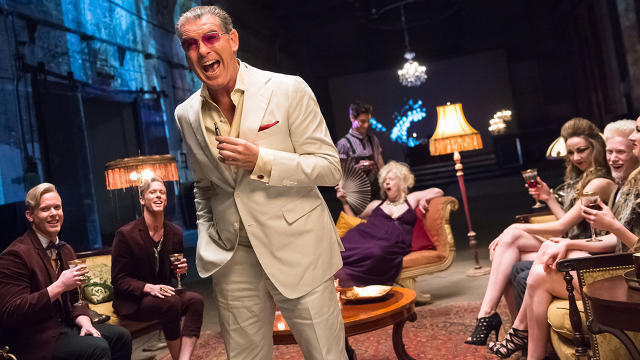
“These were super-stylish movies that were so visceral.”
“In general, I’m not a fully fancy director—I’m still a bit of a philistine,” Kaufman admits. “I don’t know if I could make a period piece because I’d be like ‘Okay, where are the ninjas?’ That said, I’d never make a traditional, down-the-middle movie. So making sophisticated genre movies—that’s interesting to me. I think the world needs that now. In the ’80s and ’90s you had people like Adrian Lyne who made Jacob’s Ladder and Fatal Attraction. These were super-stylish movies that were so visceral—the style really supported who the characters were and built that world they were in. I’m wondering where’s that voice now?”
Kaufman is trying to bring back the theatrical fervor for thrillers with Urge. He doesn’t want to create a movie you’ll wait for on Netflix—he wants to create something so enticingly stylish you’ll be remiss for not watching it in theaters.
“When you’re watching it in theaters, the movie owns you.”
“The theatrical experience is a special thing and we’re encouraging it to die and that sucks,” Kaufman says. “Watching a movie at home is great. Watching a movie on a plane is great, but they’re not the same thing. I’m not against technology, but we’re moving too far away from and devaluing getting 200 people in a room to watch something at the same time without starting and stopping. You’re forcing people to get enveloped in it. The moment you watch something at home, you’re active. When you’re watching it in theaters, you’re passive—the movie owns you. It takes over your senses. It sounds minor but it’s not.
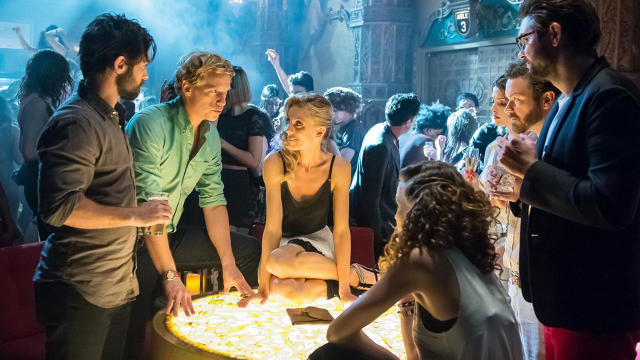
“People have 70-inch televisions…why would they leave their house to go to the theater? If you look at Interstellar, they’re creating experiences you can’t replicate at home: you have to go to a theater. So when I sat down to make Urge, I thought how visual could I make it? How much of a difference would it be to watch it in the theater or home? How can I make it worth it for people to get a babysitter and go to the theater?”
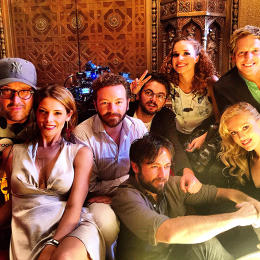
“I definitely want it to become part of the culture.”
It’s not important to Kaufman to get Urge on the big screen for money’s sake—he says his measure of success rests with cultural currency.
“Woody Allen has the best line about what’s a successful movie and it’s one that allows you to make another movie,” Kaufman says. “For me, I definitely want Urge to be theatrical. I don’t think in terms of, ‘This movie needs to make $100 million.’ But I definitely want it to become part of the culture. In the ’90s, when a movie like Kids came out, it was like a thunderclap—everybody wrote about it, everybody went to see it, it played at the Angelika for six months. It was happening. If that movie came out today, it would go straight to DVD. To me it wasn’t money as much as it was how do you get to be part of the culture—that’s the beauty of making movies.”
Note: No trailer for Urge is out yet.
(327)




